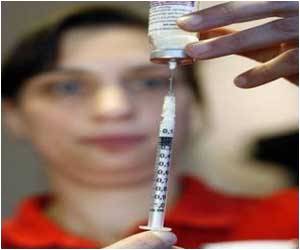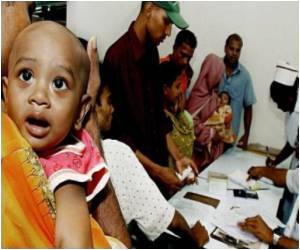A new study has found that community workers can play an important role in combating diseases like malaria, pneumonia and save lives.

The research team from the Center for Global Health and Development at BUSPH addressed the widespread practice of treating children with fevers with anti-malarial drugs, rather than screening them first for malaria or pneumonia.
The researchers found that allowing community health workers to use a diagnostic test for malaria, before prescribing treatment, "resulted in a significant increase in the proportion of appropriately timed antibiotic treatments for non-severe pneumonia, and in a significant decrease in inappropriate use of anti-malarials."
The health workers were trained to give amoxicillin to children with suspected pneumonia.
"This study has demonstrated the feasibility and effectiveness of using [community health workers] to provide integrated management of pneumonia and malaria at the community level," wrote the author.
The research team, led by Kojo Yeboah-Antwi of BUSPH, studied treatment outcomes for more than 3,000 children, ages 6 months to 5 years, who presented with fevers, and in some cases fast respiratory rates, at community health posts.
Advertisement
The study found no significant difference in the overall treatment failure rates for children in the two groups. But it did find that the proportion of children who were given anti-malarial drugs was much higher in the control group than in the intervention group -- 99.1 percent, vs. 27.5 percent - suggesting that many of the children in the control group who were given such drugs did not need them.
Advertisement
That five-fold increase in the timely treatment of pneumonia was easily achieved by the trained community workers, the researchers said.
The study noted that more than 20 percent of children in the control group who were referred to health centers for suspected pneumonia did not comply with the referral.
"Providing [community health workers] with the means to treat malaria, but not pneumonia, increases the risk of treatment delay and progression to more severe disease for children with pneumonia," the researchers said.
They said the study's findings bolster the idea that community health workers in rural, remote areas can and should be trained to diagnose and treat common childhood illnesses.
The study was published in PLoS Medicine.
Source-ANI















